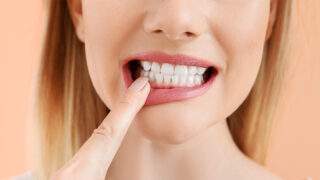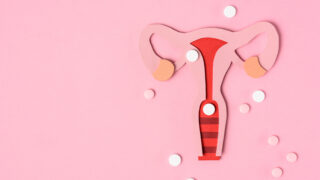Every night, 30 to 45 per cent of the global adult population lies in bed wide-awake, struggling to get a good night’s rest, according to World Sleep Day. I am sure that’s increased recently due to worry and stress. It’s definitely affecting hair loss too – according to Retern Hair.
Given that the recommended amount of sleep for adults is seven to eight hours a night, which accounts for almost one-third of our lives, sleep problems are now recognised by the World Association of Sleep Medicine as a global issue that threatens the health and quality of life for up to 45 per cent of the world’s population.

The average sleeper goes through various cycles of the two sleep phases in monophasic sleep: non-rapid eye movement (NREM) sleep, transitioning from light sleep to deep slumber, and rapid eye movement (REM) sleep where dreams occur. However, the sleep cycles of insomniacs are often irregular, skimming light sleep but rarely reaching REM sleep, resulting in restless, wakeful nights and daytime fatigue.
Fortunately, insomnia is treatable and here are three ways to get to sleep, depending on what type of insomniac you are…
THE SELF-MEDICATER
Sleeping pills are only available by prescription here in Singapore and we don’t advise taking that route if at all possible. So we’ve put together a list of some other over-the-counter and home remedies to try.
Start a sleep routine
The simplest and cheapest way to tackle insomnia.
Dos
1. Reserve the bed solely for sleep and sex; don’t eat, work or watch TV on the bed
2. Set a sleeping and waking time and stick to it, allowing only one to two additional hours on the weekends
3. Exercise regularly, preferably in the morning and never right before bedtime
Don’ts
1. Eat a heavy meal, or spicy or sugary food two hours before bedtime or you may experience heartburn, indigestion or an energy boost
2. Drink alcohol or caffeine four hours before bedtime
3. Lie in bed if you can’t get to sleep. Get up and do some light reading until you feel sleepy again
Get comfortable
A good pillow should provide adequate support for your head, neck and shoulders while you sleep. Natural filling such as goose down or feathers are best, complemented with a good mattress and cool bedding, as they allow air to circulate and keep the sleeper’s head and body cool throughout the night. For extra fluffy pillows and crisp sheets, keep the room temperature cool or turn on the air-conditioning 15 minutes before bedtime.
Down it
Having a cup of chamomile tea 45 minutes before bed helps relieve mild insomnia as the chamomile flower contains relaxants and works as a natural sleep aid.
Root it out
Valerian root has been used as a natural supplement to relieve anxiety and promote sleep for centuries. While the dried raw root smells like stinky socks, extract of valerian root now comes in capsule and pill form and should be taken 30 minutes before bedtime as needed.
Oil up
Essential oils either by diffusing or breathing them in or using them in massage oil can help us relax enough so we can drift off. Lavender, chamomile or ylang ylang essential oils are good ones to try. You can also add them to pulse points such as the wrists and back of the neck to help support the natural sleep process while training the brain to identify bedtime.
You could also book in a massage at home option with someone like Aleyda Mobile Spa.
Power nap
Skip the coffee break and try a power nap instead. According to researchers at Georgetown University, a 30-minute nap between 1pm and 3pm helps lower blood pressure, improves memory function and reduces stress. However, napping longer than 30 minutes or in the late afternoon would be counter-productive as it leads to sleep inertia, making you feel even more sluggish than before.
THE PROFESSIONAL HELP SEEKER
You’ve tried all the cures and gimmicks and are convinced science is the only thing that can help you now. Here are the professionals who can help.
The sleep centre
Insomnia is not a diagnosis but a symptom of other underlying medical conditions such as obstructive sleep apnoea (breathing difficulty during sleep), stress or depression. When these causes are treated, sleep often improves.
Yoga
A little omm goes a long way. Researchers at Harvard Medical School found that participants who practiced basic yoga moves – that can be learnt in just one training session – before bedtime had significantly improved sleep efficiency and total sleep time. Yoga loosens tight muscles, releases tension and puts you in a deep state of relaxation, stemming the flow of stress hormones. So roll out the yoga mat, even if it’s for one session to learn the basics.
Traditional Chinese Medicine (TCM)
In Chinese medicine, insomnia is the result of an imbalanced chi involving multiple organs and meridian systems such as the heart, liver, kidney and spleen in various combinations. Every individual suffering from insomnia has a different underlying chi problem and has to be treated differently with acupuncture sessions accompanied by herbal remedies over a period of three to six months.
Hypnotherapy
Contrary to popular belief, people under hypnosis are fully aware of their surroundings and are in complete control while resting in a heightened state of physical and mental relaxation. When one is in a relaxed state of mind through hypnotic induction, the subconscious mind and brain waves can be reprogrammed for REM sleep. Interestingly, an increasing number of sleep specialists are recommending alternative medicine and hypnotherapy as an alternative to medication.
Cognitive Behavioural Therapy (CBT)
In case you’re wary of seeing a psychiatrist know this, CBT has been proven effective in treating up to 80 per cent of insomniacs. They even maintained their sleep improvements for at least six months, according to a study by the American Academy of Sleep Medicine. You will be required to keep a detailed sleep log, based on which the psychiatrist will assess your condition and teach relaxation techniques. Therapy schedules can vary anywhere from weekly visits to monthly check-ins. It might be worth talking to someone about it.
Sleep study
Chronic insomniacs who visit a sleep specialist to get a professional diagnosis will usually be put through a sleep study, also known as a polysomnography. Traditionally performed in a sleep laboratory where the patient has to be hooked up by wires to a monitoring device, sleep tests these days can be done at home using a Watch PAT device attached to the wrist for equally accurate results.
After determining the underlying causes of insomnia such as allergies, asthma, obstructive sleep apnoea or restless leg syndrome, these causes are first treated or reversed before medication is prescribed, says Dr Pang Yoke Teen from the Centre for Ear, Nose, Throat, Allergy and Snoring.
THE GADGET LOVER
You need things – lots of things – so parting with your phone is totally out of the question. Here are various sleep-friendly gadgets you can add to your room that can help balance the constant buzzing and flashing of your handheld device.
White noise
According to the US National Sleep Foundation, noises lower than 40 decibels (such as a dripping tap) or higher than 70 decibels (your neighbour’s blaring stereo) can keep us awake. While there are fancy white noise generators such as a sound conditioner, using a fan or air-conditioner that generates constant, low frequency sound will work too.
Sound Asleep pillow
Listening to 45 minutes of relaxing jazz, folk or classical music before bedtime will send you off to sleep faster than counting sheep, researchers at the National Taiwan University found. So create a suitable playlist and plug your iPod into a Sound Asleep pillow(£25). The hidden, built-in speakers in the pillow are for your ears only so you won’t disturb your sleeping partner. It also comes in a giant fleece blanket form if you want to snuggle up.
More isn’t necessarily better
The Singapore Sleep Society suggests that adults who routinely require more than 10 to 12 hours of sleep a night and yet still feel tired should seek medical attention, as the need for prolonged sleep may be an indicator of narcolepsy, a less common sleep disorder characterised by excessive daytime sleepiness and sleep attacks.
For more helpful tips head to our living in Singapore section.
Don't miss out on the latest events, news and
competitions by signing up to our newsletter!
By signing up, you'll receive our weekly newsletter and offers which you can update or unsubscribe to anytime.



